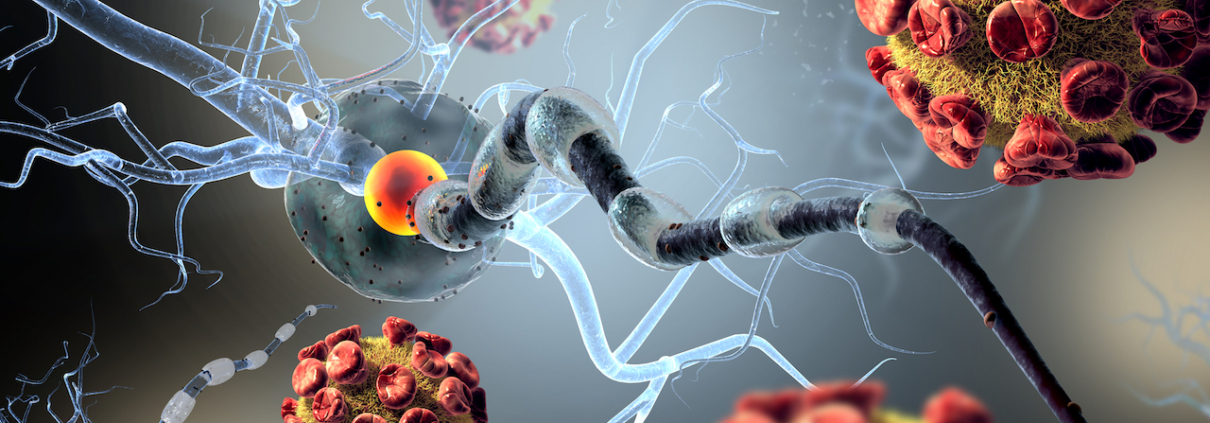Immunocompromised vs Immunosuppressed – Is There a Difference?
What’s the difference in meaning between immunocompromised and immunosuppressed?
Both terms refer to deficiencies in the normal function of the immune system. So whether a person’s immunocompromised or immunosuppressed, their body’s will be less effective at fighting off infections.
But what’s the difference between these two terms?
What’s The Difference Between Immunocompromised and Immunosuppressed?
Both terms refer to essentially the same thing – that a person has a weakened immune system. So some people might use these terms interchangeably, but the difference between the two is why someone’s immune system is weak; whether it’s a result of a medical condition or medication.
Generally speaking:
- Immunocompromised people have a weakened immune system as a result of another health condition.
- Immunosuppressed people have an immune system that’s been weakened intentionally as a result of medication or other treatment.
What Does Immunocompromised Mean?
This usually means that a health condition is affecting a patient’s ability to fight infections. Examples of conditions that can affect a patient’s immune system include HIV, cancer, diabetes, malnutrition, and some genetic disorders.
What Does Immunosuppressed Mean?
When people use this term, they usually refer to a condition that’s been induced deliberately. Doctors may prescribe patients with immunosuppressant drugs for a variety of reasons, which we’ll discuss below.
Why Is Immunosuppression Deliberately Induced?
There are many reasons why a doctor might intentionally suppress a patient’s immune system, via medication or other procedures:
- To prevent the body from rejecting organ transplants, bone marrow transplants, and stem cells.
- Immunosuppression is common in the treatment of auto-immune diseases, where the body responds abnormally to a functioning body part. Examples include lupus, rheumatoid arthritis, Sjögren syndrome and Chrohn’s disease.
- Immunosuppression may also make recurrence less likely for cancer patients in remission.
Doctors can induce immunosuppression with medication. But they can also induce it with radiation treatment (such as chemotherapy), plasmapheresis (the removal and treatment of blood plasma), and certain surgical procedures (such as a splenectomy, the removal of the spleen).
But when a patient’s received immunosuppressive treatment, they become immunocompromised, indicating that their immune system is less effective at fighting infection.
This is why these two terms are regularly confused, and often used interchangeably – because when a patient is immunosuppressed, they become immunocompromised. And a patient may be immunocompromised as a result of immunosuppressants.
How to Make Hospitals and Healthcare Settings Safe For Immunosuppressed and Immunocompromised Patients
Infection is a risk for anyone who spends any time in a hospital, whether they’re staff, patients, visitors, contractors, or other members of the public. But the risk of infection is particularly acute for immunocompromised patients. Due to their weakened immune systems, any infection they contract has the potential to be life-threatening.
Following the Standard Infection Control Precautions will help keep healthcare environments safe for immunocompromised patients. These include:
- Patient Zoning – Keeping immunocompromised patients separate from patients who carry a high infection risk. This is one reason why hospitals have dedicated chemotherapy departments.
- PPE – Using the right PPE for the right purpose, and using it correctly. This includes following the correct procedures for storing, using and disposing of the PPE, and ensuring it’s taken off in the correct order.
- Cleaning – As well as adopting the correct hand hygiene procedures, hospitals and healthcare settings must commit to a cleaning routine that meets the appropriate regulatory standards. This includes choosing hospital-grade cleaning products.
Addressing Airborne Infection Risks
A hospital grade air purifier can help you quickly and thoroughly improve the air quality in any area of your hospital where immunocompromised patients may receive treatment.
Our Blueair HealthProtectTM air purifiers are fitted with advanced HEPASilent technology. These are capable of catching 99.97% of particles down to 0.1 microns. This includes the viruses and bacteria which carry the greatest infection risks for immunocompromised patients. Examples of viruses that can be removed include Coronaviruses such as SARS-COV-2 and influenza, which are highly contagious.
Take a look at our specialist air purification systems for hospitals.



